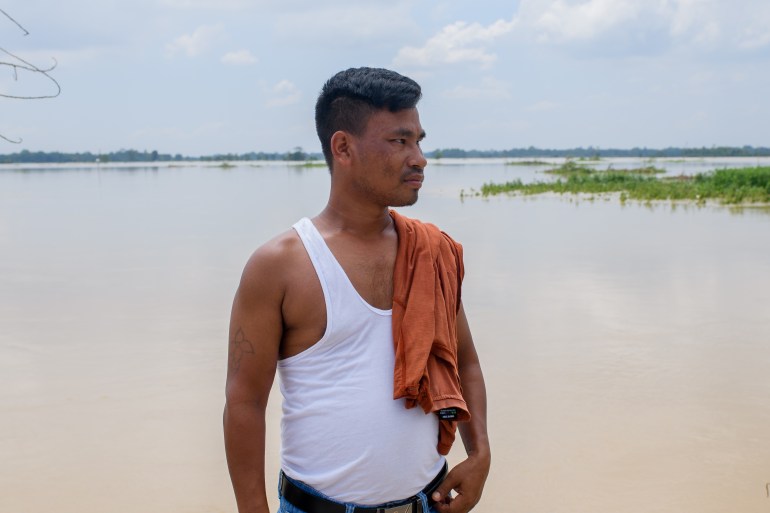
Millions in Assam have been affected by the floods since heavy pre-monsoon rains first hit the region last month, inundating large parts of the valley. After the initial deluge in May, no one expected the floods to worsen with the arrival of monsoon showers, leading to the breach of 297 embankments in 20 districts by June 19.
Displaced residents recalled seeing this ferocity of the Kopili River, a tributary of the mighty Brahmaputra, in 2004 and 2007. This year, everyone agreed, is the worst.
As of June 26, 2,524 villages in Assam were affected across 27 districts, with more than 200,000 displaced people taking shelter in 564 relief camps across the state, according to Assam’s Disaster Management Authority. At last count, the death toll had reached 127.
Dr Syed Faizan Ahmed, a resident in Silchar Medical College, told Al Jazeera a “big” epidemic of water-borne diseases such as typhoid is expected to follow soon after the floods.
“The floodwater contains lot of faecal bacteria and viruses, so oral faecal diseases like diarrhoea and typhoid apart from skin allergies and infectious diseases will be common,” he said, adding that his hospital had already started preparing to treat immuno-compromised people in the paediatric and geriatric age groups.
Government figures estimate a total of 91,658 hectares (226,492 acres) of crop area has been damaged by the floods, raising urgent concerns of livelihood in a state where agriculture employs 53% of the workforce and accounts for 75% of the state revenue, directly or indirectly.
Moina Deka and his friends in Rupahitoli village believe it is futile to spend money and time to sow any crop after the floods recede. “Even if we plant new crops, it will again get swept away when the river swells during the monsoons,” he said. Monsoons in this region could last up to October.
The mood in Rupahitoli is sombre as residents think of Magh Bihu, Assam’s biggest festival that marks the end of the harvest season in January-February.
“We celebrate by eating rice freshly cut from our fields,” said Moina. “But when there will be no harvest at all, what would be the meaning of Bihu?”